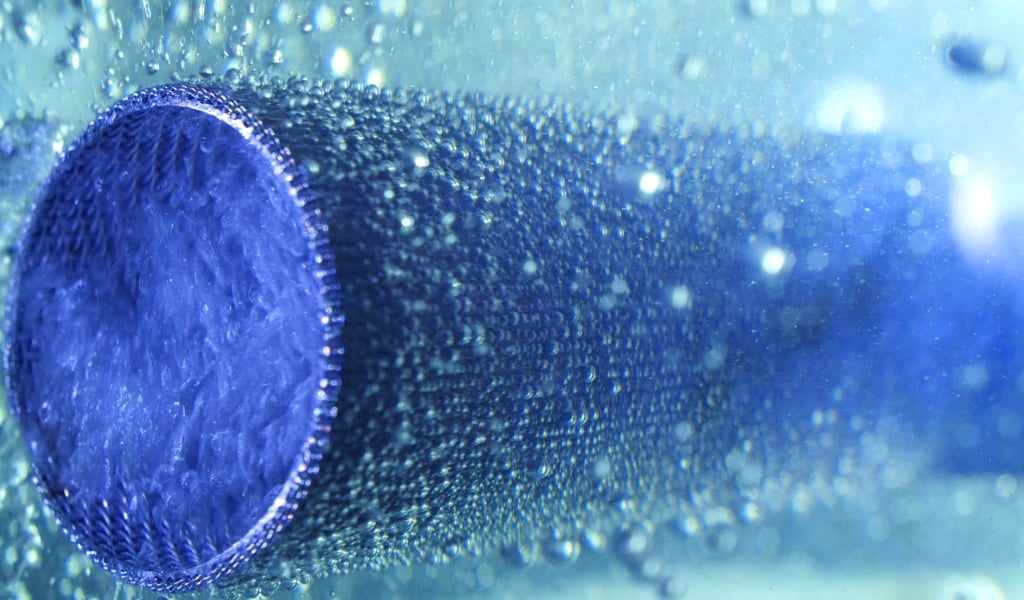Wire Mesh vs. Cartridge Filters: Which Is Best for Water Filtration?
Water filtration is a vital process across industries, but choosing the right filter type can be a major challenge. Cartridge filters, while common, often require frequent replacements that are sometimes within just days or weeks. This generates an alarming amount of waste as the constant disposal of used cartridges contributes significantly to landfill buildup and environmental degradation, making it a serious concern for sustainability-focused operations.
This constant cycle of maintenance and disposal can strain both budgets and eco-friendly goals.
Wire mesh filters offer a long-lasting, energy-efficient alternative. With lifespans that stretch across years, especially when constructed using high alloys, wire mesh filters reduce the need for frequent replacements and minimize the energy consumption of cleaning devices in self-cleaning systems. Their robust design, consistent pore sizes, and ability to be fabricated into complex parts make them ideal for demanding filtration environments, even in challenging conditions such as salty water.
At W.S. Tyler, we are dedicated to making industrial processes cleaner and safer through precision-engineered filtration solutions. With over 150 years of experience, we help operations achieve long-term reliability, sustainability, and cost-efficiency.
In this article, we’ll compare wire mesh and cartridge filters across several key factors: filtration performance, maintenance requirements, and long-term value. You’ll learn how wire mesh filters provide more reliable particle retention, enhanced process stability, and environmental benefits. We’ll also explore how coatings can help to reduce bio-fouling and extend filter life. By the end, you’ll understand why wire mesh filters may be the smarter, more sustainable choice for your water filtration needs.
Understanding Wire Mesh and Cartridge Filters
Wire mesh filters are constructed from woven metal wires that form a precise, porous structure. This design allows for consistent filtration while maintaining high flow rates. The open area and mesh count can be customized to suit specific filtration needs, making wire mesh a versatile option for various water filtration applications.
Cartridge filters, on the other hand, are typically made from pleated or wound materials such as polypropylene or cellulose. These filters trap contaminants within their media and are often used in applications requiring fine filtration. While effective, they tend to have lower flow rates, clog quicker, and require more frequent replacements compared to wire mesh.
The primary difference between wire mesh and cartridge filters lies in their structure and how they capture particles. Wire mesh filters rely on surface filtration, meaning particles are trapped on the surface of the mesh. Cartridge filters use depth filtration, capturing particles throughout the media. This impacts not only performance but also maintenance and longevity.
Wire mesh filters are ideal for operations that require durability, reusability, and high throughput. Cartridge filters are better suited for applications needing finer filtration and where disposable solutions are preferred.
Having a clear understanding of these foundational differences is essential before diving deeper into performance and maintenance comparisons.
Filtration Performance: Wire Mesh vs. Cartridge Filters
Cartridge filters are often favored for their ability to capture extremely fine particles, sometimes down to sub-micron levels. This makes them ideal for applications where ultra-clean water is essential.
Wire mesh filters, while not typically used for ultra-fine filtration, offer consistent and reliable performance for larger particulate removal, especially when precision mesh specifications are used.
Wire mesh filters generally allow for higher flow rates due to their open structure and lower resistance to fluid flow. This can be a significant advantage in high-volume operations. Cartridge filters, with their dense media, tend to create more pressure drop, which can reduce flow efficiency and increase energy consumption over time.
One of the standout features of wire mesh filters is their durability. Made from stainless steel or other robust alloys, they can withstand harsh conditions and repeated cleaning cycles without degrading. Cartridge filters, being made from softer materials, are typically single-use and must be replaced once clogged, which can add to operational costs.
Ready to fine-tune your filtration system with woven wire mesh? Learn how different weave types impact filtration performance and durability in our article below:
In applications where particle size is predictable and consistent, wire mesh filters provide excellent performance with minimal maintenance.
Our wire mesh solutions are capable of achieving a nominal filter fineness of 1 micron and absolute filter finenesses of 5 micron, making them suitable for more demanding filtration needs.
Market feedback also indicates that cartridge filters rated at 10 micron often exhibit similar particle retention to woven wire mesh filters rated at 20 micron, due to the mechanical nature of wire mesh filtration.
Ultimately, the best option depends on the specific filtration goals and the nature of the water being treated.
Maintenance: Cleaning and Replacing Your Filters
Wire mesh filters are designed for reusability, making them easy to clean and maintain. Depending on the application, they can be cleaned using methods such as backwashing or automatic self-cleaning filters.
In fact, real-world examples have shown that in large-scale operations, switching to automatic filtration systems can lead to total cost savings of > 70% compared to conventional cartridge filters. They also have the potential to be coated to help further reduce bio-fouling and to extend the filter life. This ability to restore performance without replacement makes them a cost-effective option over time.
Cartridge filters, in contrast, are typically single-use. Once they become clogged or reach the end of their service life, they must be replaced entirely. While this simplifies maintenance in some cases, it also leads to recurring costs and high downtime expenses, especially in operations that rely on long usage cycles and process stability.
These interruptions can significantly impact productivity and overall operational efficiency.

Because wire mesh filters can be cleaned and reused, they often reduce downtime and labor associated with filter maintenance. Cartridge filters, while generally easier to replace, require more frequent attention. This can be a deciding factor in operations where uptime is critical and labor resources are limited.
Reusable wire mesh filters contribute to sustainability by reducing waste and minimizing the need for constant replacements. Cartridge filters, being disposable, generate more waste and can lead to higher long-term costs. For operations with environmental goals or tight budgets, this distinction can be significant.
Making the Right Filter Choice for Your Operation
Wire mesh and cartridge filters each offer distinct advantages when it comes to water filtration. Wire mesh excels in durability, reusability, and high flow rates, while cartridge filters provide finer filtration and simpler replacement. Understanding these differences is essential to optimizing your filtration system.
If your operation values long-term cost savings, minimal downtime, and sustainable practices, wire mesh filters may be the ideal choice. While cartridge filters are often preferred for ultra-fine filtration, it’s important to note that our wire mesh solutions can achieve a nominal filter fineness of 1 micron and absolute fineness of 5 micron all while maintaining a manageable pressure drop.
The key is aligning your filtration choice with your operational goals, balancing performance requirements with efficiency and reliability.
At W.S. Tyler, we’re dedicated to helping you create cleaner, safer processes through reliable filtration solutions. With over 150 years of experience, we provide the insight and products needed to make confident, informed decisions.
Looking to dive deeper into one of the most critical factors influencing filter performance? Check out the article below:
About Dylan Polz
Dylan is a Content Writer with 2 years of experience in marketing and SEO. Passionate about learning and strengthening his writing skills, he is currently expanding his expertise in particle analysis and woven wire mesh technologies. With a strong belief in the power of information to drive positive change, his goal is to develop content that supports cleaner, safer solutions across all industries.



